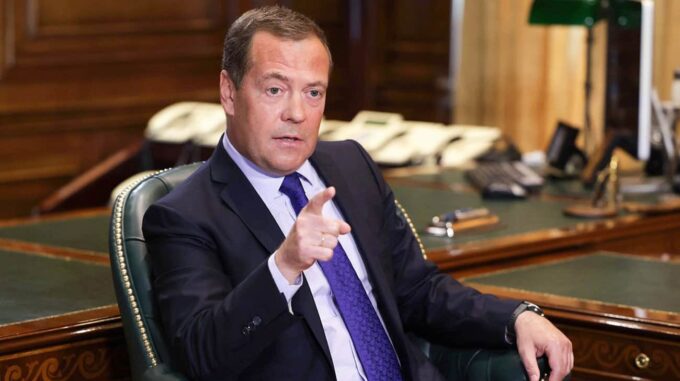Moscow again threatens countries that joined NATO: potential retaliatory strikes and nuclear weapons

Former president and current deputy chairman of Russia's Security Council, Dmitry Medvedev, has once again raised the curtain of uncertainty and tension in global geopolitical relations by making sharp statements regarding new NATO member states. In his latest speech, he did not hold back and warned countries that officially joined NATO at the end of last year about possible severe consequences for their decision. According to official sources released by TASS and confirmed by "European Truth," Medvedev stated that countries recently joining the alliance, including Finland and Sweden, automatically become targets for Russian military actions. In his words, they no longer enjoy the privileges that previously granted them a more favorable international status due to their geopolitical location and other factors. "Since joining NATO, they have come under our radar as an adversarial bloc. Therefore, they now automatically become potential targets for our armed forces, including possible retaliatory strikes and even the use of nuclear weapons," Medvedev emphasized, adding that Russia is prepared to employ all necessary means "within the framework of its military doctrine." He highlighted that for countries that have "crossed the red line," a new phase in their relations with Russia has openly begun. “They have simply come into our crosshairs, and now — no safe zones. Is their situation better now? I don’t think so. It’s a political game that could have very serious consequences for regional and global security,” the former president added, heightening the tension in an already strained situation. Threat and its context Of course, such statements by Dmitry Medvedev did not appear out of nowhere. Previously, Russia's chief intelligence officer, Sergei Naryshkin, warned the European Security Council that the Baltic states and Poland must understand that their security is under serious threat due to NATO’s increased activity in Europe. According to him, these countries are provocateurs that could become the first targets if the alliance launches open aggression against Russia and Belarus. On the other hand, Baltic defense ministers do not hide their anxiety. They point out that any rapid ceasefire in Ukraine threatens to significantly worsen the security situation in their regions. Their concerns are justified: experts emphasize that increased NATO military activity and any Russian response could lead to major conflicts, unjustified and very dangerous for the entire world. Amid these events, international tensions are rising sharply, especially with threats from the Kremlin regarding "harsh responses" and the possible use of nuclear weapons. All of this is happening ahead of new rounds of diplomatic negotiations and attempts to reduce regional tensions; however, according to analysts, the actual situation resembles a process of turning the global conflict mechanism rather than its containment. Thus, the official rhetoric in Moscow leaves a dangerous scar: any steps taken by new NATO members are now perceived in Russian circles as a direct challenge and a precondition for extreme measures. This raises questions about the prospects for diplomatic solutions and rebuilding trust in European and global security.

